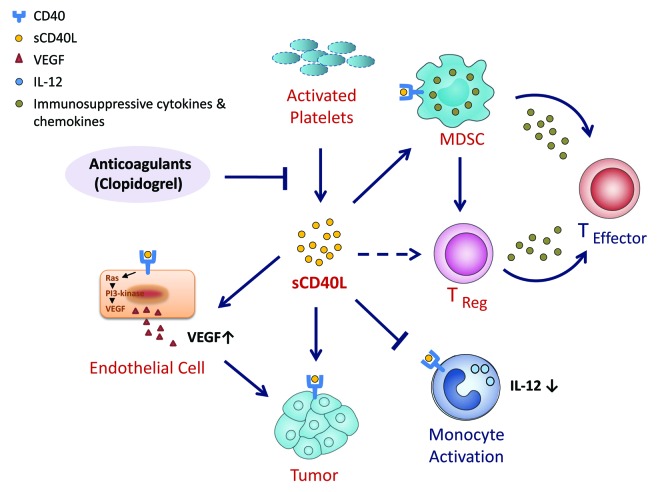Figure 1. The role of sCD40L in immunosuppression. It has been demonstrated that (1) there is a much greater frequency of CD40+ myeloid-derived suppressor cells (MDSCs) in cancer patients than in healthy donors, suggesting that MDSCs from cancer patients are more likely to respond to sCD40L signaling, and that (2) in co-culture models, sCD40L promotes the expansion of MDSCs while inhibiting the proliferation of T cells and their capacity to secrete interferon γ (IFNγ). The administration of sCD40L to cultured peripheral blood mononuclear cells (PBMCs) also resulted in a significant expansion of regulatory T cells (Tregs) and in increased levels of activation markers on T cells from both healthy donors and cancer patients. Only the latter, however, responded to sCD40L by upregulating the inhibitory receptor PD-1. sCD40L has also been shown to block the activation of purified monocytes and the consequent production of interleukin-12 (IL-12).

An official website of the United States government
Here's how you know
Official websites use .gov
A
.gov website belongs to an official
government organization in the United States.
Secure .gov websites use HTTPS
A lock (
) or https:// means you've safely
connected to the .gov website. Share sensitive
information only on official, secure websites.
